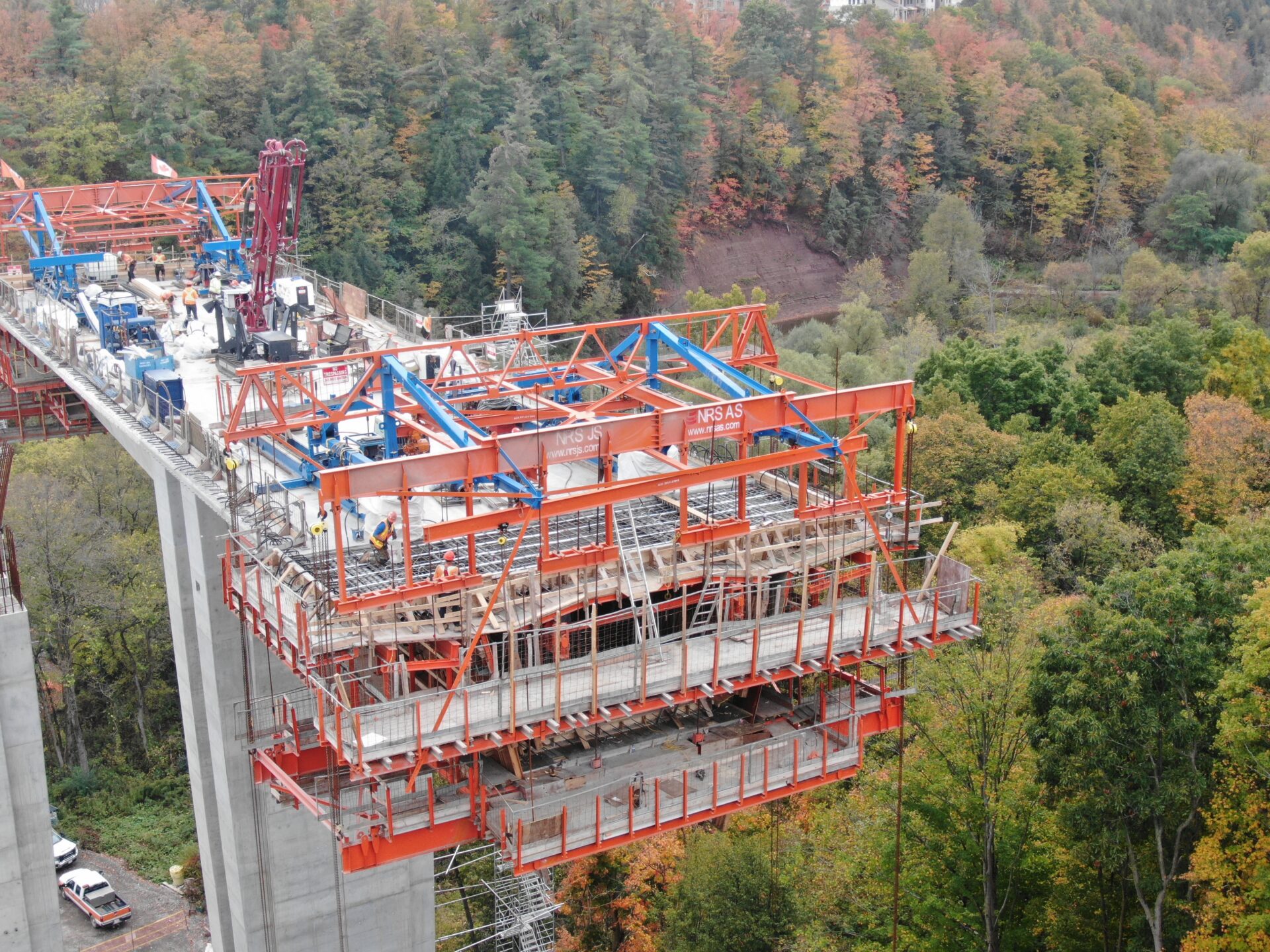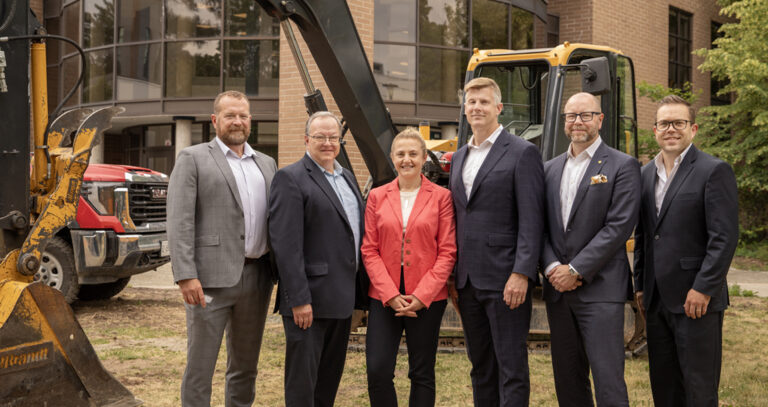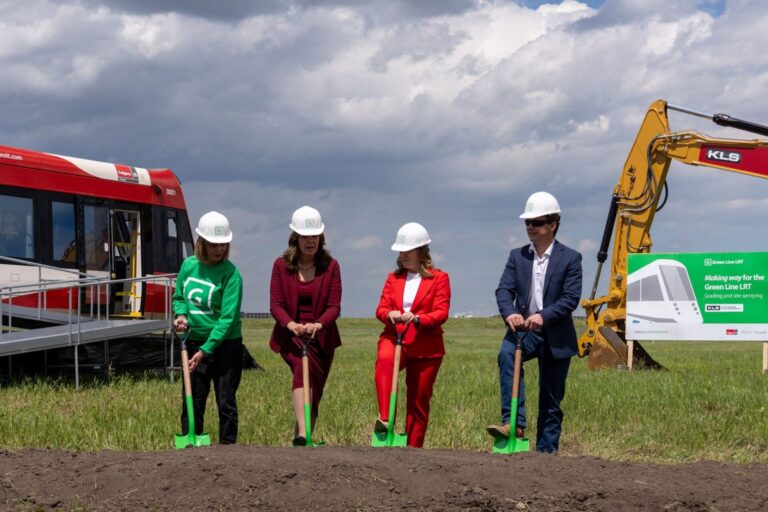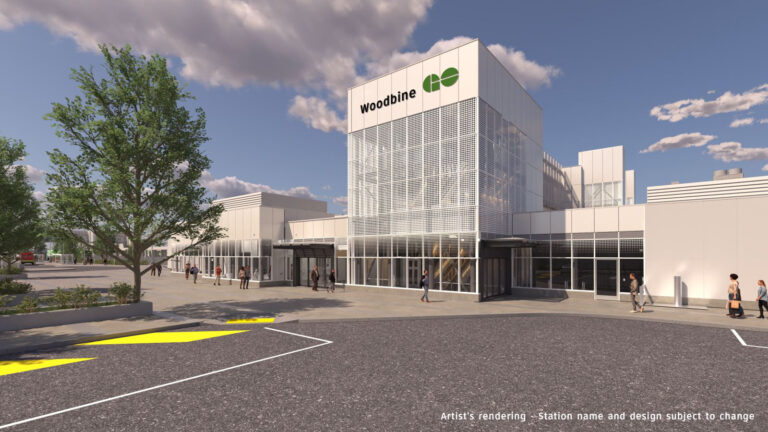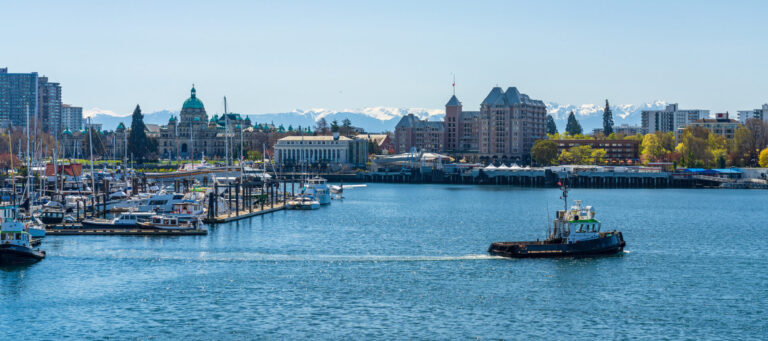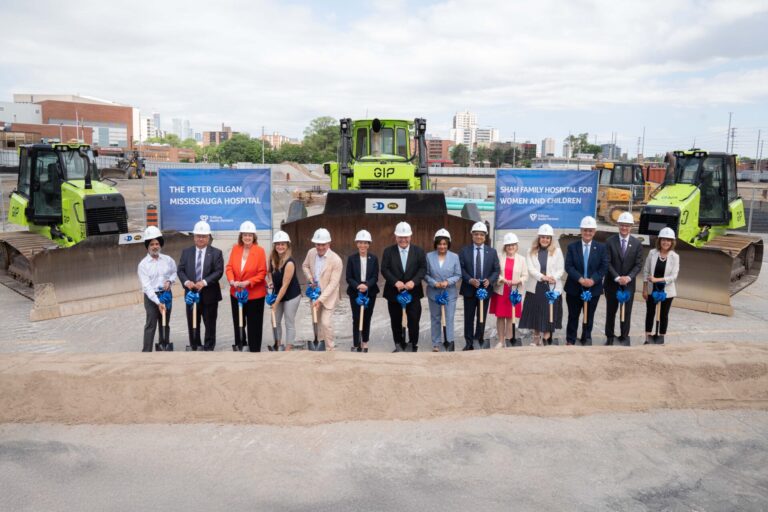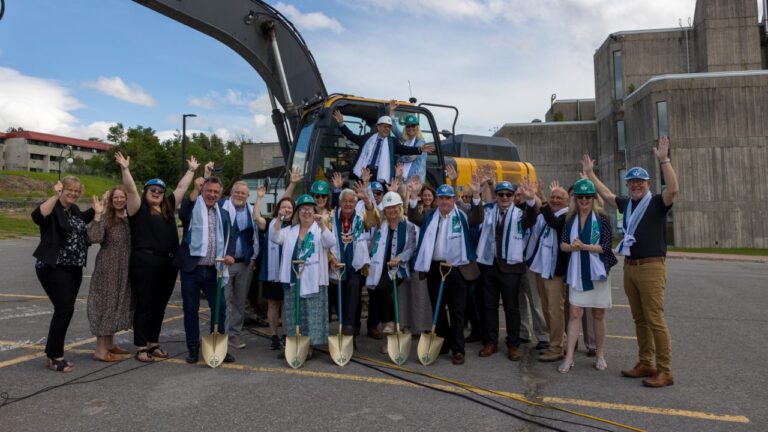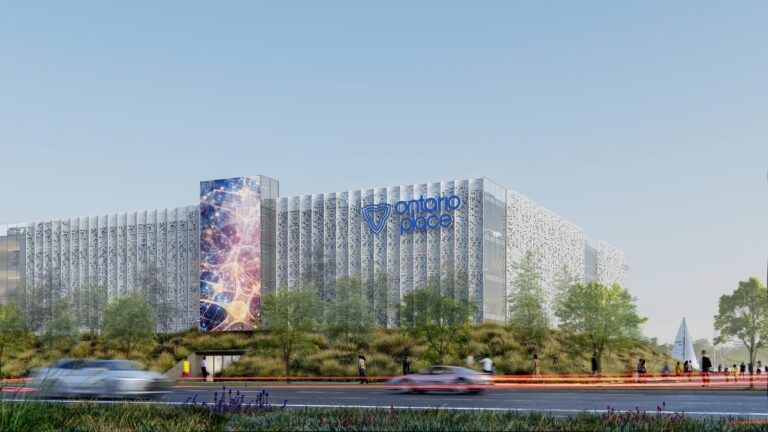COWI and Bot Construction Group announced they have reached a critical stage in the cantilever construction of the William Halton Parkway crossing. The project will see the construction of two new bridges over the Sixteen Mile Creek in Oakville by the Region of Halton as part of the project.
Spanning 280 meters, the bridges will each host two lanes and pedestrian walkways. Once completed, the new bridges will connect Third Line to Neyagawa Blvd with the north and south bound bridges easing traffic congestion in an area of growing population.
The three span segmental bridge is being built by utilizing a cast-in-place segmental construction technique using a moveable form traveler system. While the first phase of the project adopts a typical cast-in-place segmental construction using a balanced cantilever method, the bridge construction will soon reach a section of the west pier cantilever where segment casting will proceed in a single direction toward the west abutment. This unbalanced cantilever construction is a unique adaptation of the balanced cantilever construction method which was required for the west and east pier configurations and locations.
The portion of the extended cantilever will be supported by using a temporary stay cable tower that will anchor supporting stays at each of the 8 ‘unbalanced’ cantilever segments. For this system to work seamlessly, COWI designed a unique steel anchor box which will enable the load transfer of the supporting demands of the cable stay tower to the concrete segment. This unique mechanism not only minimized the need for top slab concrete modifications as compared to the original designs but will also ensure a clean extraction of the cable stay tower once the bridge is completed.
The construction of the North bridge is progressing well with the Bot team onsite having completed the installation of the first four pair of segments on the west and east pier cantilevers. Bot and COWI are now making progress to complete the cantilevers to a point to be able to cast the span closures.
“We are pleased to see positive progress on this project. The casting of the first segments are often the most challenging areas in segmental bridge construction due to the complexity of the rebar details, the learning curve for the casting procedures, and the absence of accurate project data to reflect the performance of the form traveler on that specific structure,” Ivan Liu, P.E., Senior Bridge Engineer at COWI. “Having worked on a number of similar projects across North America, we were able to lean on historical project data to provide informed engineering support for possible construction scenarios and estimations on the form traveler behaviour.”
Selected as the Construction Engineer, supporting Bot Construction Group with its first segmental bridge project, COWI is harnessing local and technical expertise from its offices in Toronto and Tallahassee, Florida. COWI is responsible for the construction analysis, geometry control, erection manual, and construction support of both bridges along with the design of temporary work structures.
The bridges are expected to be completed in 2024, with plans to open to the new William Halton Parkway extension to the public by 2025.
Featured image: (COWI)

